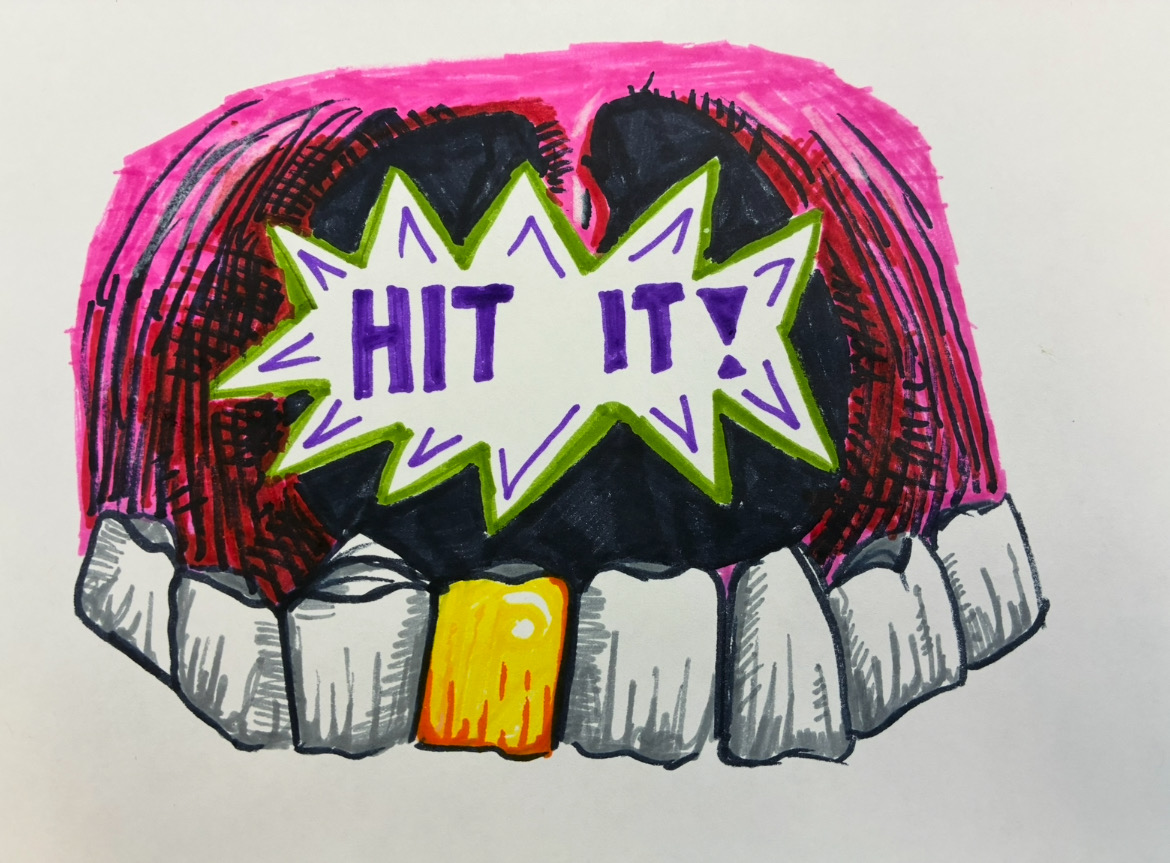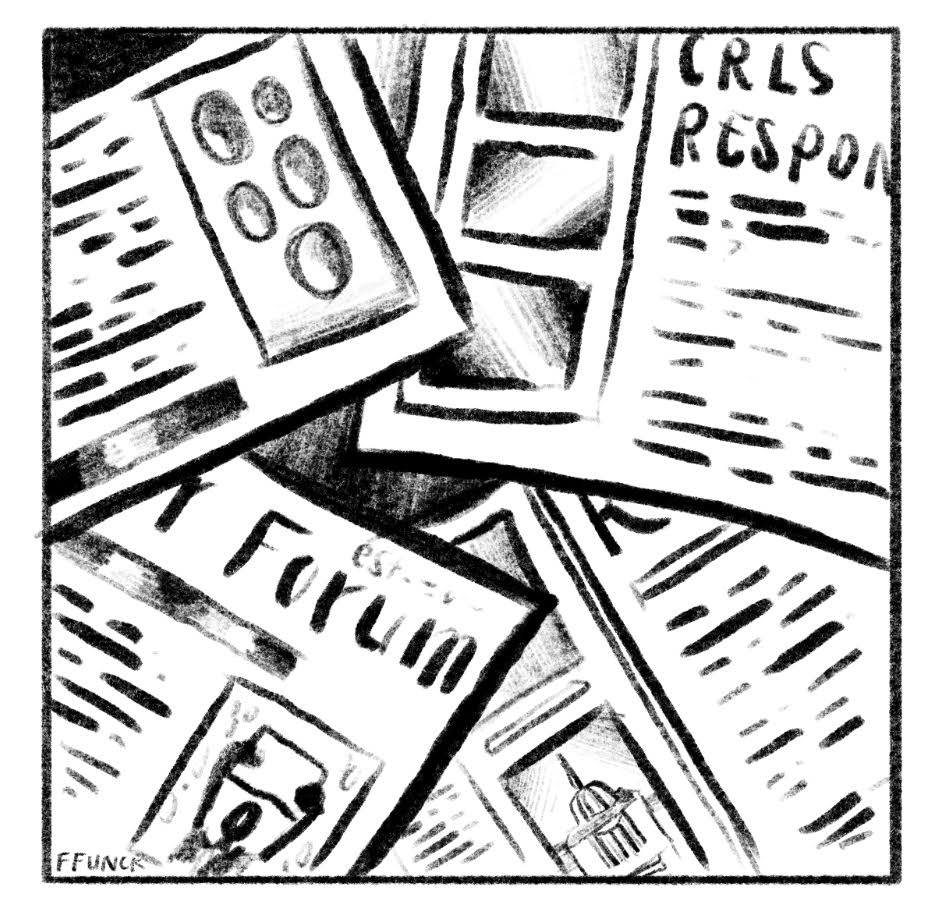2023 Interviews with School Committee Candidates
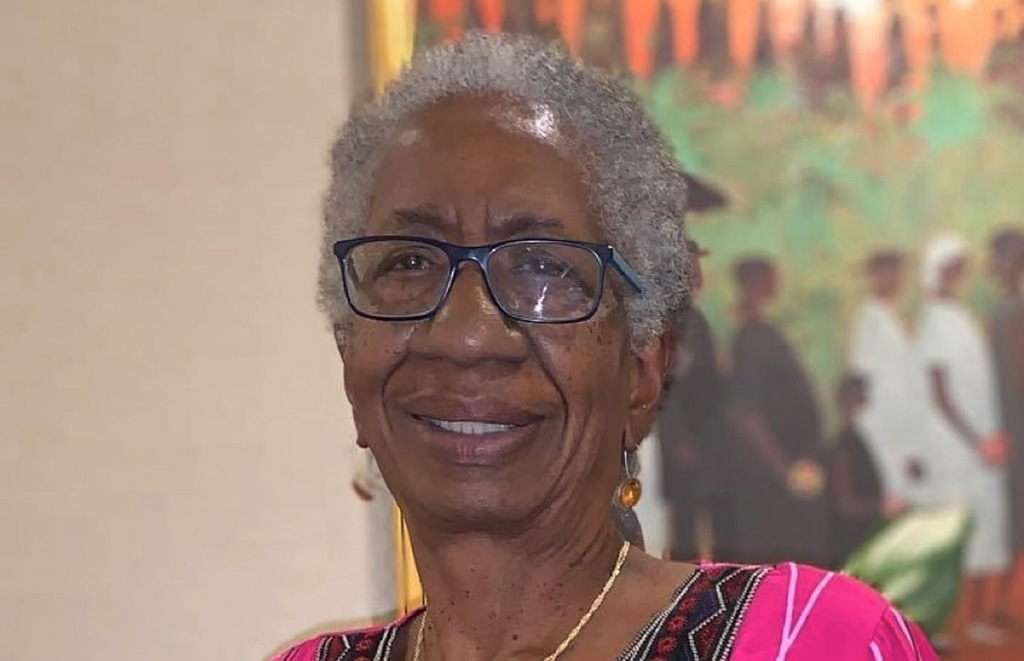
RF: What distinguishes you from the other candidates in the race?
I think my experience distinguishes me. I have more than four years as an educator and 40 years of experience overall in education, with 34 of those at the Cambridge Rindge and Latin High School. Within the school district, my roles vary from being the assistant principal for 5 years, to the Student Government Advisor, and a classroom teacher. My daughter went through the Cambridge Public Schools, so I’ve participated as a parent, a teacher, and an administrator.
Beyond that, I have a broad background in education. I have two masters in education– one from Cambridge College with a specialty in adult education, and the other one is a master’s in administration and planning from the Harvard Graduate School of Education. I’ve worked in prisons, and I’ve also taught math to nurses and high school students who wanted to be doctors. I bring to the table a variety of experiences as a long-time resident of Cambridge, in addition to representation of all those constituent groups.
RF: I’ve also read that you’ve founded several organizations as well. How have those experiences impacted your views and goals for CPSD?
They’ve enforced my view and value that public education is a wonderful thing. It can change the lives of the individual as well as empower our family and generations to come. So all of that has strengthened my belief in the power of a solid education.
RF: How can the School Committee be more effective in meeting those standards?
I think we can do a better job in talking about our work. A lot of the work in the School Committee happens at the table. We do a great deal of work in the sub-committees, each one of us has one or two sub-committee assignments. And that’s an opportunity for us to reach out to teachers, parents, and students to provide an intersection of information to support students, teachers, and parents. To provide support to the administration in terms of the ideals and goals around our district level. So, to accomplish that, I think we need to do a better job of advertising that and responses to broaden the information of parents.
RF: How do you aim to close the achievement gap?
We have to strengthen our reading instruction. I’m very excited that we brought in the science of reading as the foundation of our reading program. I’m hoping that the training and the materials that the district has invested in this program will see fruits. I also think that with the gap in reading mathematics, we can provide more support for families and scholars in these areas.
RF: How could you provide more support?
By strengthening our curriculum and the professional development for our teachers, and broadening the activities for our students.
RF: What sort of activities do you mean?
Part of the idea of this new curriculum is that it has a lot of projects and hands-on curriculum. I know that those things, as a teacher and an administrator, help to support the foundational learning for our students. But I think we are still down to the basics in terms of providing every student with a good foundation in mathematics. We’ve seen individually that we have to move particular groups along.
RF: On your website, you mentioned that you would like to focus on 8th-grade math and 3rd-grade reading scores, why those two groups in particular?
Those are places where our district has not been able to deliver that same quality education to all of our constituent groups. And so our black and brown students in 3rd grade are lagging behind in reading, and particular socio-economic groups are lagging behind in reading [and mathematics]. The district just bought the first K-12 mathematics system, which we hope will provide some continuity for students, because even though students come from different elementary and middle schools, they ultimately land in the high school together. So I think those two things will go a long way in terms of elevating the achievement gap, more support for families, and greater communication particularly around the language barriers. And I think that the strategic tutoring that we are instituting this year will help bring the students up collectively and individually.
RF: What are your vision and overall goals for CPSD?
My overall goal for CPSD [is] to provide a quality education. I’ve seen the product and value of it. So my goal is to see that everybody has an opportunity for their children, that they have educators who care for them, who believe in the quality and work hard to deliver that product. My goal is to provide the quality, opportunity, and value of a good education for every child in CPSD.
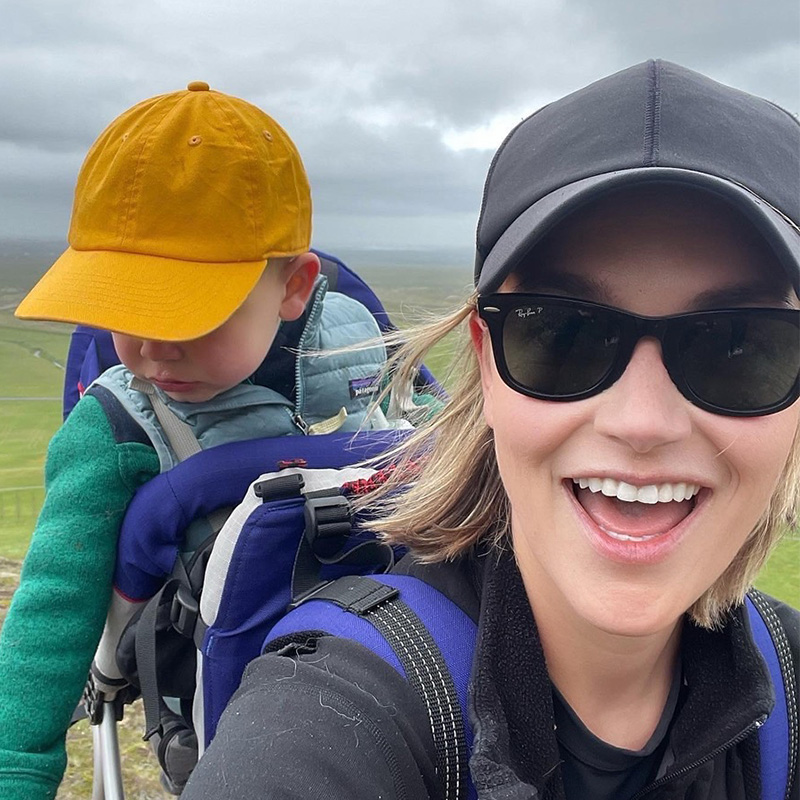
RF: How could the school committee be more effective?
We need to support our educators. When it comes to having a high-quality school system, we cannot ask the world of our educators and not deliver it for them in return. Ensuring that our educators are compensated fairly, that they are supported, that they are valued, and that they are listened to. That’s what’s most important; that’s the biggest lever you can pull.
RF: How do you aim to close the achievement gap?
By spending our funds on staff in classrooms. If you have 25 kids in a class, it can be hard to recognize all the different ways in which people need to access the concepts you are trying to teach. The very first thing you can do is recruit and maintain the best educators and add more positions within the classroom.
RF: What distinguishes you from the other candidates?
The thing that I’m really passionate about is math and science education, and I think what distinguishes me is that I have experience in those fields. I know the value that having a strong foundation there can provide, and when I say strong foundation I mean having an enthusiasm for the subject. I know the opportunities that can be unlocked when you are excited about those topics.
The other piece is that I’m not afraid to stand up and speak for what I believe in. I think there are lots of differences of opinion on the committee and everybody is very polite. It is important to be able to work with your colleagues and have that community relationship, but you also have to be willing to have the courage of your conviction. So, I think what sets me apart is that I have the courage of my conviction.
RF: What do you see as CPSD’s greatest strength and greatest weakness?
I think their greatest strength is that they are willing to take bold actions. I think their greatest weakness is that they never follow up and see which of those actions actually had an impact, and when they don’t have an impact, we don’t hold ourselves accountable.
RF: Do you think the way to fix this weakness would be to look at more data?
I think the way to fix the weakness is we look at our data, and we publicly hold ourselves accountable. We stand up and say we made this change, one year later, 5 years later, 10 years later, it did work or it didn’t work. We do that publicly. We write it down so that when the next person is on the committee, they can stand on the shoulders of that experience, as opposed to constantly reinventing the wheel.
RF: What are your positions on the math curriculum, particularly pertaining to Algebra I?
I firmly believe that it should be an option to take [Algebra I] in middle school. I understand that you are then put in the difficult position of saying does everyone take it? Or do you effectively reintroduce tracking? And there are downsides to both. I think the only piece that I know confidently, is that I believe absolutely there has to be the option to avail yourself of that line of study. I think there is a really important discussion to be had about how we do that, and I think that’s a discussion that we should have with the math educators, and with the students…I feel that we should provide every and any support we can in order to enable the greatest number of people to access the subject in a way that they find exciting and inviting.
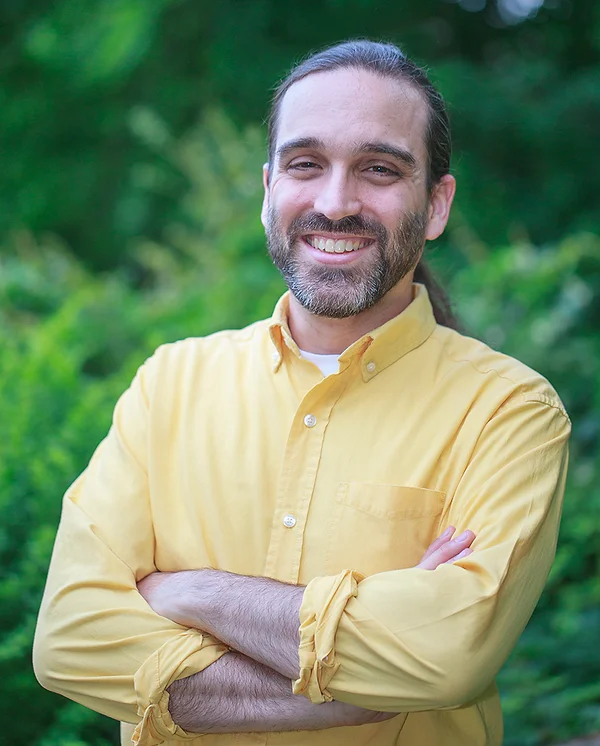
RF: Tell me a little about your campaign
My campaign is really about the priorities I’ve had during my time on the school committee, with the main priority being working to close the racial, gender, and economic opportunity gaps in our schools.
RF: Do you mind elaborating on how you have been addressing those gaps?
A piece that I think has a lot of potential to really help us close those gaps is establishing an individualized Student Success Plan model and system throughout Cambridge Public Schools. To provide cradle-to-career and college support for everybody and is something I’ve been advocating for for a long time. And we are making progress this year. In Cambridge, we have so many resources; the financial resources, the people, community organizations, our educators, our families and caregivers, and students themselves. And yet there are kids who fell through the cracks
RF: I’d love to hear a little more about the cradle to college or career path, what might that look like for a student who’s in high school?
High school should not be the first time that an individual is getting the support that they need. It shouldn’t be the first time that a student has an opportunity to explore their passions and reach their potential. That can happen and should happen in age-appropriate ways in upper and elementary school. In high school, one of the components of that is making sure that there are experimental opportunities, like internships, as well as lots of support and guidance, both for the college application process and for exploring other opportunities.
RF: How do you think the school committee could be more effective for CPS?
That is always a kind of top-of-mind question for me. How can we be more effective? Are these things that we’re doing right now working? Can they be improved? Should we be doing something else? So part of how we can be more effective is ensuring that we really do evaluate the work that we’re doing. We are really thoughtful about when something that we’re doing needs more support, needs to be expanded, needs to be tweaked, and when something needs to be ended. One of the pieces where we still have room to improve is in terms of our collaboration and communication, interactive communication with the community. There have been a few processes that even just in the last couple of years where we’ve improved on that front but need to do better, where we’re bringing in various stakeholders from out into the thinking process. Sometimes we’re not doing enough to really make sure that that input is being reflected in what we actually do moving forward.
RF: What is the current evaluation process for the school committee members and projects?
We had a whole series of meetings and processes to develop a multi-year plan, including specific goals that we could use to evaluate if we were making the progress that we felt we should be able to make. I would say the ultimate evaluation of the school committee is the election. But I don’t wait for two years to pass to get and seek feedback. I try to listen and adjust.
RF: What do you consider your greatest accomplishment on the school committee?
I’ve been on the school committee for two terms now. That first term we were confronted with the pandemic, and I am really proud of my work and collaboration with others. We focused on the health, safety, and well-being of our children, our educators, and our community as a whole. Throughout that period we were able to put in place health and safety measures that prioritize bringing people back in person or having that option to come back in person much earlier than a lot of places. With, again, all of these safety measures in place we had robust remote learning, supporting educators, and a lot of collaborative work. As we’ve recovered, we’ve worked on both social support and targeted academic support. So, I’m proud of what we were able to do in this really unprecedented situation.
RF: What do you see as CPS’s greatest strengths right now?
Our greatest strength is ultimately people. It’s our students, educators, families, and caregivers. There’s a real commitment to education and the well-being of children from the people throughout our community. That plays out in the kinds of financial investments that the City of Cambridge makes into schools and programs that we have here in Cambridge, both within our schools and partner and community organizations. And I think another real strength in Cambridge is that we are really aligned in our focus on educational excellence, racial equity, anti-racism, and really supporting children and families in whatever their needs are.
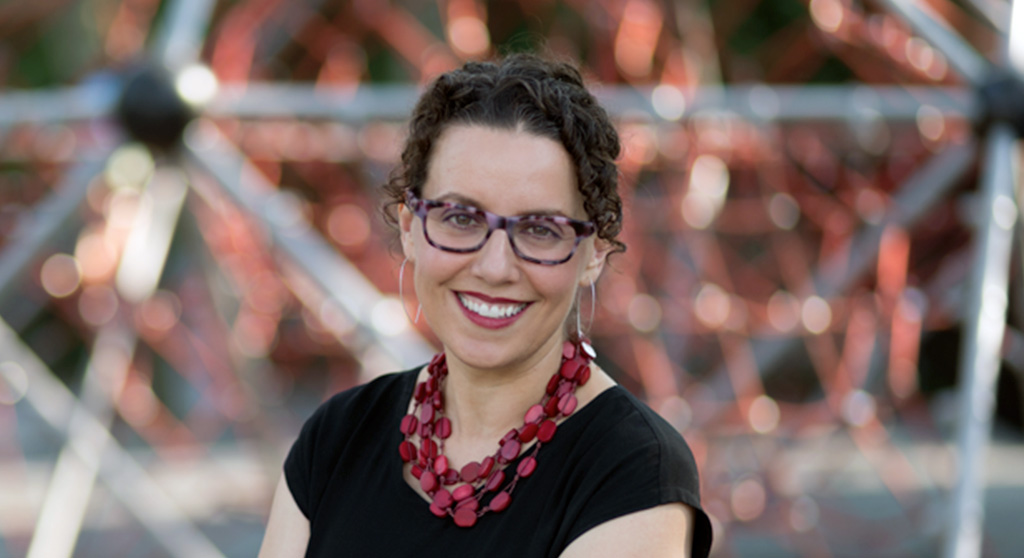
RF: What distinguishes you from the other candidates?
Rachel Weinstein (RW): What most distinguishes me is that (1) I prioritize listening to and collaborating with students, educators, and families–that’s how I get a sense of what is and isn’t happening in the schools. (2) I’ve delivered on my campaign promises, and (3), with the retirement of Fred Fantini, who has served on the School Committee for 40 years, I am positioned to be the senior member on the Committee. I’ve only been on for four years, but I have been Vice-Chair for the last couple of years which comes with another level of responsibility and depth of knowledge about how our district works.
RF: What were those campaign promises you have kept?
RW: I made three commitments in my last campaign, the first being an expectation of greatness from all students regardless of demographic group. The previous district plan had different goals for white students and students of color, but I’m pleased to share that our current district plan now expects students regardless of demographics to achieve at high levels… Additionally, in both of my previous campaigns, I advocated for every child to have a champion. Young people work best when they have an adult they can lean on to have help in accessing opportunities and support. I’m excited that one of the strategic initiatives in the district plan is individualized student success plans.
RF: What do you see as CPSD’s greatest strength and weakness?
RW: I think our greatest strengths are our community values and commitment to our schools… We have students, teachers, and community members even without children who are vocal on what is and isn’t working. We have many pieces of the puzzle such as diversity, financial resources, and talent. However, in terms of weaknesses, we haven’t quite put the pieces together in the most optimal way yet… in Cambridge, there’s sometimes this thing we do where we say “in the name of equity we are going to the sameness or the lowest common denominator”.
RF: Your first motion to the School Committee was to name racial equity as a priority. In what ways have you fulfilled this priority?
RW: Before I thought of running for School Committee, I was a part of the Building Equity Bridges movement, and so when I was first elected, Member Wilson and I, our very first motion we introduced was to prioritize racial equity. We used its passage and continued our work with equity to fund the new Office of Equity, Inclusion, and Belonging and to adopt a new anti-racist mission and vision.
RF: How will you continue to prioritize equity if re-elected for a third term?
Through my collaboration with students, I value working explicitly on anti-racism in our schools, as well as how we make sure our schools are inclusive of LGBTQ+ students. This past term I worked with Title IX Aurelia Advocates to update the district’s Title IX policy to ensure all students were able to participate in consent workshops. I also appreciated the RF reporters who asked for my comment on anti-Semitic graffiti at school… I looked into our hate crimes policy, which was an astonishingly insufficient line of something like “we don’t tolerate hate crimes”… I took the lead on updating this policy so that if there is an incident of hate, we stop as a school community, we talk about it, we learn and process it together as a community.
RF: What will you do differently and similarly from your previous experience on the School Committee?
RW: In the past, I was combative with the administration and Superintendent about what I thought should happen, but over time I learned that most of the time, the Committee needs to collaborate with the administration, though we still need to push them… In terms of similarities, I’d love to keep working with students–the most rewarding moments are when students reach out with, “we have an idea” and we talk and connect about it… for me, they have the most powerful impact.
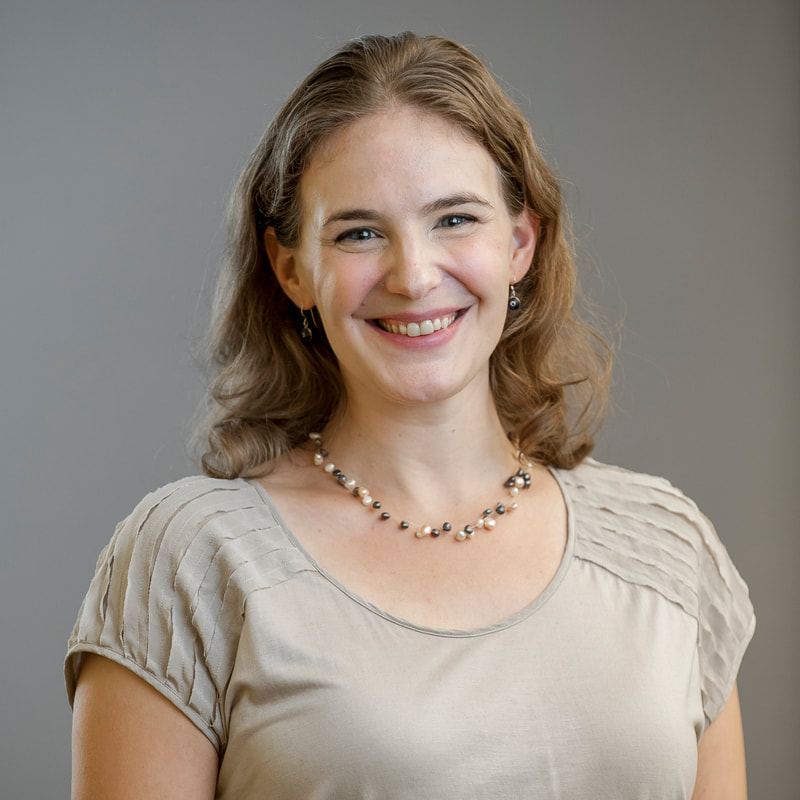
RF: What distinguishes you from other candidates?
The biggest distinguishing factor is my desire to make sure that the public knows what’s going on. You can see that already in my weekly newsletter, where I go deep on a whole bunch of issues that have been in the public eye lately, mostly algebra and the elementary and middle school schedules. I’ve also been talking with the press when I think that there are stories that need more attention. And so I think that’s a real difference.
RF: Do you hope to continue that once here if you’re elected?
Absolutely. That’s going to be my entire approach to being effective. I came to this work from having done similar things. I was part of a big group of parents advocating for more after-school from the GHSP after schools. We were able to make policy changes when we shed light on policy failures. And we had a big group of parents who were interested in our mailing list, and we kept them informed. And when we could show that something was being handled poorly, they got angry. And that helped us to make a change. So that’s what I’ve seen as succeeding, and I don’t see myself ever changing that way of conducting business.
RF: How do you think the School Committee could be more effective?
I think the School Committee is lacking two big things right now. The first is that they don’t inform the community, parents, teachers, and students about the issues that are going on. Often, they expect people to learn about it from these really long meetings that are really difficult to access. The second to last one was six and a half hours. So when that’s the only source of real information about what’s going on, it’s not great. The second is that the school committee meetings themselves lack follow-up questions. They don’t ask CPS administrators to give us the data that’s often necessary to look at a question. One example I often cite is the algebra debate. There’s a bunch of basic data that I thought was completely missing from this two-and-a-half-hour discussion about algebra. For example, we don’t know how many students make it to AP calculus, and we don’t know how many of those went to a private middle school or a public middle school. And that I just don’t understand how we can even have a discussion about this topic without understanding whether or not the way they’ve placed middle school algebra has been a hurdle or not. We also have no data on how many students are taking outside math classes or tutoring and why. We don’t know.
RF: What is your understanding of why having an Algebra One curriculum in eighth grade is so important to closing the racial achievement gap in Cambridge?
I think there are a few answers to that question. At its core, the answer is that we want to make sure that every kid in Cambridge does really well. I would love to have a district where people, people are like, “Wow, the Black students in Cambridge, the Hispanic students in Cambridge do so much better than students in any other district. What are they doing right?” and take notes. That would be the ideal. Unfortunately, that’s not at all where we’re at. I think one piece is that there seem to be deeper issues in the elementary school years – there seem to be kids who don’t come into the start of middle school knowing the math that they should. And that’s not even on racial lines. If you look at the numbers, they’re not great for any racial group, but they’re worse for black and Hispanic kids. So in order to create a program where we’re teaching algebra in eighth grade, I assume we would need to shore up our math in elementary school. There is a new curriculum is being unveiled this year, called Illustrative math, and lots of people have been excited about that. But I have also heard that Illustrated math needs a lot of teacher training. So we need to make sure that we ensure that this is a curriculum that can succeed.
My goal is that every student reaches or gets to the place where they can take AP Calculus if they want to. I don’t think every student needs to take AP Calculus, I don’t think every student needs to take calculus. But I think every student needs to be set up for that success, because AP Calculus is a gatekeeper for selective schools, selective colleges, and STEM careers, and we want every child to be able to choose if that’s what they love. And we don’t want that to be something for white and Asian kids only, which I’m worried that it might be.
RF: Is there anything else you’d like to add?
I just want to end by saying that I was a high school teacher in the Bronx. That really motivates me when I think about why do all this work, like all this door-knocking and writing these insane newsletters that I write every week. It’s really just thinking about my students that I had during that time. Those students in the Bronx did not have the great education they deserved. But that’s what motivates me. All the students here in Cambridge deserve a great education, whether they’re poor, whether they’re rich, whether they’re black, white, mixed race, Asian, Hispanic, whatever. Every single child deserves a great education. They deserve to go out into the world able to contribute what they can, and I want to make sure that our school system unlocks that potential.
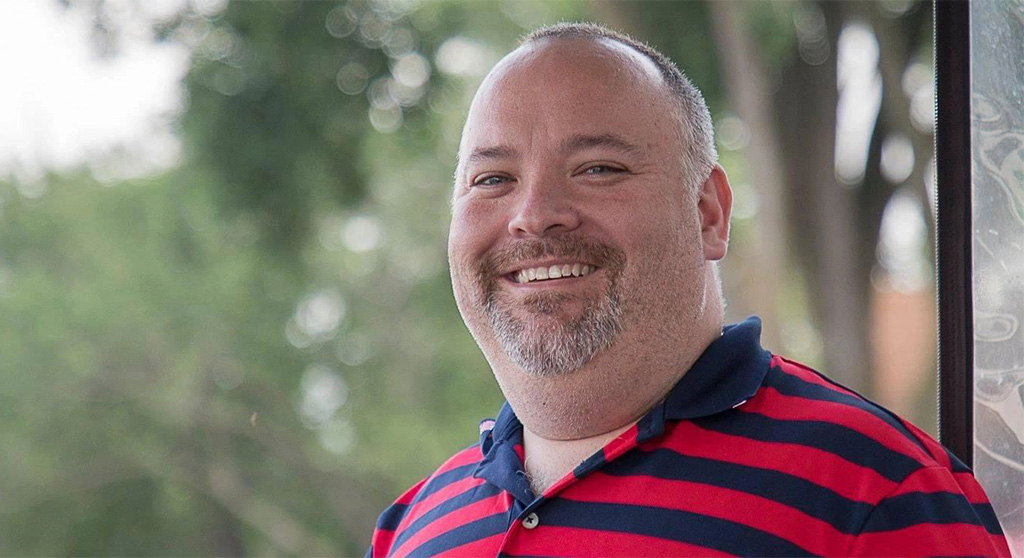
RF: What distinguishes you from other candidates?
I’ve gone to the public schools from kindergarten all the way up, and I work in the schools right now. So I have a hands-on approach. I am the eyes and ears for both educators, but also parents and families. I’m bringing a unique perspective.
RF: As a current paraprofessional, how do you think CPS could best support teacher and paraprofessional positions?
I think they need to value their employees. They need to pay them. At one point Cambridge used to be in the top 10 across the state, and that’s dropped. That’s why the average teacher stays in the classroom now for four to six years. And if you value your employees, you care for your employees, you respect your employees, employees are going to stay. And I don’t see that happening. For Hire point, you know, higher pay districts.
RF: What role do you think the school committee could play in placing more value on their employees?
The first thing is bargaining for a good contract. Right now teachers are out of contract. And I think the second issue is special ed and making sure those educators are compensated appropriately. If they do those two things, their teachers are going to respect them and want to work in the district.
RF: How do you think the school committee could be more effective?
I think they need to be in the schools more to see what’s actually going on. They shouldn’t just be grandstanding at school committee meetings. And also they should be thinking about every child, not just a certain few children.
RF: What do you say is CPS’s greatest strength or weakness?
Well, Cambridge is complex. I think we have good elementary schools. But our middle schools are in crisis. A lot of this seems to be due to curriculum, but I don’t know. What it seems like is that when it comes to middle school, families leave the district, but then they come back at the high school level. That needs to be looked at.
RF: Do you believe the school committee does a good job of listening to all voices in the district?
I have a unique position because I videotape and control the sound and all the school committee meetings. So I’ve been doing that since I was a sophomore in high school. So I see all the school committee meetings and what I see happening is that if a certain issue is a hot-button issue, people are all going to come out for it. But if it’s not, you don’t hear from many parents, but there could be a problem. For example, buses right now at elementary schools are getting in late, and parents are not happy about it.
One important thing that I’m hearing when I’m door-knocking is that parents are not getting timely responses from the school district, whether it’s the administration, whether it’s school principals or even teachers. If a parent emails a teacher, the teacher needs to respond, but they have to give them at least 24 hours’ notice so that they can answer it. I think we need to solve the problem of timely messages not being responded to in a timely manner.
RF: What’s it like to be running for the school committee as a member of the CEA within the context of ongoing negotiations?
It’s difficult because some things you can say publicly and others you can’t. I’m not on the negotiating team right now for the contract committee. But because I’m an officer, I go to the meetings, and I sit and listen. Next year, the paraprofessional, clerk, and substitute contracts will be up. So if I’m elected to the school committee, the school committee is going to have to realize that I’m going to be advocating for that, especially for the paraprofessionals because Cambridge used to pay pretty well. So compensation will be a big thing.
RF: Anything else you want to add?
It’s very unique that I am an existing employee. I can’t use School Department resources, so it’s very difficult for parents to come talk to me. But if you want to talk to me, I will gladly do so.
I love Cambridge. I was born and raised here and I really want to make a difference. So I hope I get elected.

RF: What main objectives would you want to implement if you were elected to School Committee?
One big thing is really to elevate parent, family, and especially educator voices in school decision-making and promote more collaborative school governance. Yesterday, I testified in solidarity with the teacher’s union, and I would also support adding a non-voting seat back for the CEA President in School Committee meetings, which would give a more authentic and robust voice to teachers.
Additionally, recruiting and retaining educators of color is critical for students of color in terms of attendance, academic outcomes, and graduation rates.
Lastly, I want to ensure a holistic curriculum that meets the needs of the whole child and provides ample time for play and social-emotional support.
RF: How do you plan to retain more teachers?
Education justice is tied to housing justice. If we provide a housing subsidy for educators, paraprofessionals, and especially educators of color, they’ll be attracted to work in the district and will be able to live near their schools. Right now around 80% of Cambridge teachers don’t live in the district, because they just can’t afford it, and that’s not okay.
RF: How do you aim to close the achievement gap?
We’ve got to provide wraparound services to address poverty-related barriers to learning for struggling students, by providing more tutors, adding individualized support, and reducing time for standardized testing.
RF: How exactly do you plan to confront standardized testing? Do you want to get rid of the MCAS altogether?
The more moderate demand is to remove the graduation requirements, but I want us to push a long-term strategy of trying to completely eliminate the MCAS system.
I was actually part of organizing efforts to get some of our existing school committee members to look at the Massachusetts Consortium for Innovative Education Assessment (MCIEA). The MCIEA is a new type of assessment system that looks at more holistic and accurate measures of school quality and school performance, such as family engagement levels, school climate, student work portfolios, and more.
I’ve also supported bills such as the Thrive Act, under which Massachusetts would have to fund a commission with broad community representation to explore and recommend a new state assessment system that uses better measures to ascertain school quality.
RF: How do you believe the School Committee could be more effective?
If I were on the School Committee, I’d work to make the school budget process more transparent and participatory. In New York, I helped coordinate and develop one of the nation’s first participatory budgeting programs. I would organize all these assemblies in public housing, community centers, neighborhoods, and schools, and they’d give hundreds of project ideas on how they want public money to be spent. We could have a Participatory Budgeting process just for CPSD — We can make the Cambridge school budgeting process much more radically democratic, creating similar structures to get more community input.
Cambridge has an extraordinarily diverse district that provides unparalleled and very high-quality educational resources and instructional opportunities. There are still robust issues, but if I am elected, I will use my platform to speak out and work to change them.
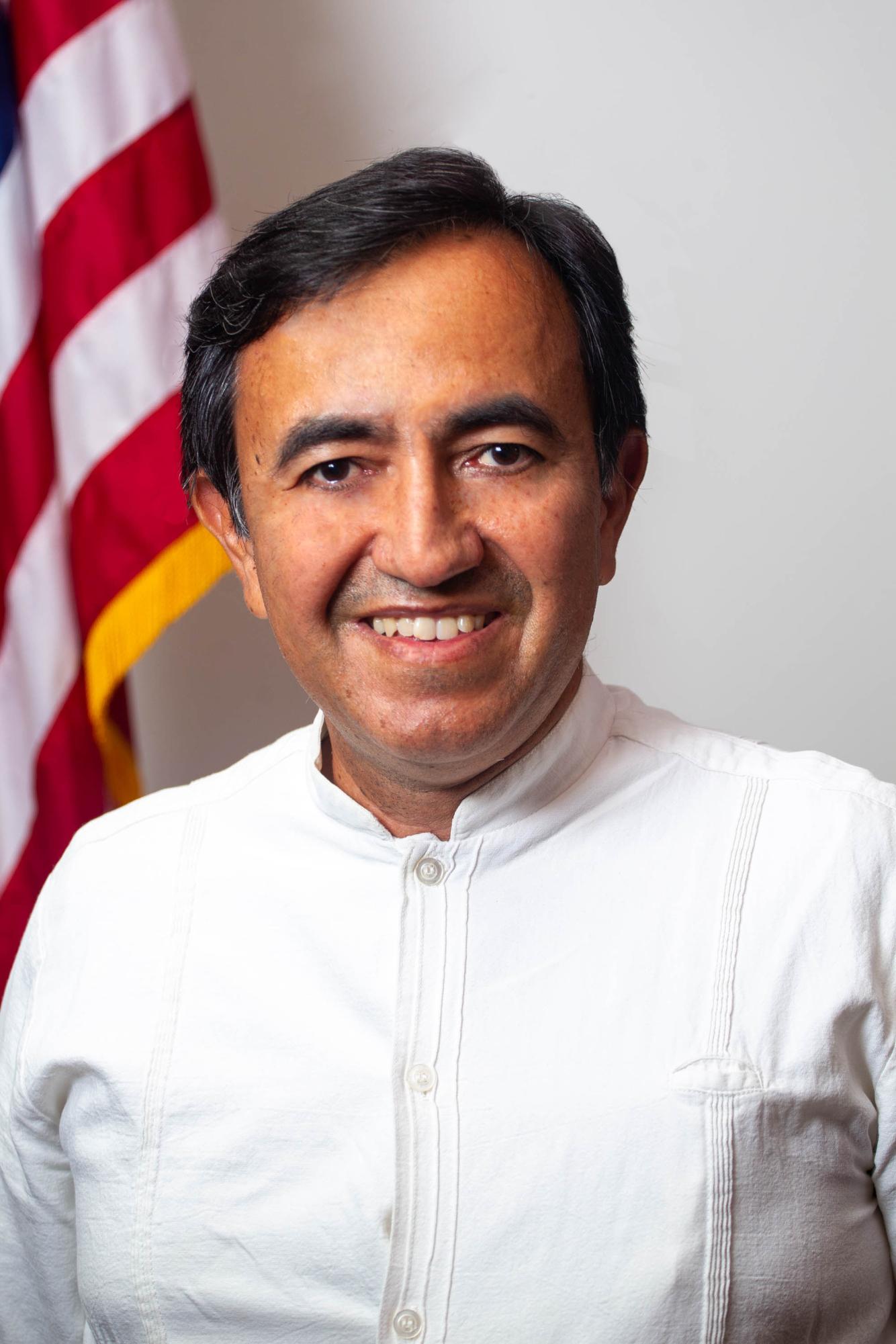
RF: What distinguishes you from the other candidates?
I feel that something I can bring to the table is my ability to have open conversations and bring up points of view that people haven’t thought of so that we can have a broader discussion and a better outcome. The other thing is that I think I’m good at listening, and by being good at listening I can help us reach consensus in difficult subjects. It’s not always possible, but that’s something I always try to do.
RF: What would you consider a “difficult subject”?
For example, right now it’s the Algebra curriculum. People have very strong views one way or another, and they all have some valid points, but what we really need to think about is what’s best for the kids: all kids, not just certain students. We need to be providing the right things for all kids at different points. For example. I really appreciate that people want to have advanced math as early as possible: some kids want to, and we should find avenues for them to do so. At the same time, I also know that middle school math is very important, and there are different ways to get to advanced math. There’s not just accelerating middle school, you can also accelerate the first couple of years of high school math and you get to the same point either way. The right thing might be different for different kids. Just having those types of discussions is important.
RF: In your opinion, how could the school committee be more effective?
One thing I’m really pushing is that we do a self-evaluation of the school committee. As a school committee we have different areas of work that we should and should not be focusing on, and the best practice a school committee could do is to look back on the past year and analyze what we’ve done. There’s this little questionnaire that we developed in conjunction with other associations and school committees that assesses whether we’re doing well or not and if we’re focusing on the right things. Thanks to this questionnaire, each person can self-evaluate how we’re doing in different areas and we can then have a discussion about the areas we’ve done well on and the areas where we could improve. I think doing this regularly would allow us to do better, searching for and pushing for issues that have been on the back burner for too long. I’m hoping to implement this questionnaire practice before the end of this school year: I want to push for this to be done so that all of us who have been together for the last two years or longer can evaluate ourselves before a new set of members comes in. You never really know what the composition of people will be next year, and I think it would be a waste not to have this conversation and self-evaluation now.
RF: How do you aim to close the achievement gap?
I don’t think I alone can close the achievement gap. I can work towards it and discuss policies, but I think one big step we are making as a community is pushing for universal preschool. Universal preschool isn’t just childcare for young people, it’s also an opportunity to socialize and get more comfortable in school settings and get early exposure that would really level the playing field for future generations. Additionally, I think we need to have better systems to assess how students are really doing in real-time. I’m not talking about MCAS, I’m talking about having assessments that are really looked at and can help us identify where students need more support. Whether it’s math, literacy, socioemotional support, whatever that student needs so that they can do as well as they can in school.
RF: What do you see as CPSD’s greatest strengths and weaknesses?
One of our greatest strengths is that we’re very well-resourced. Not just in terms of money, but we also have really well-prepared people working in the industry: teachers, administrators, parents, organizations, etc. We have people who are really well-trained to support the work that we do in the district. At the same time, because we have all of these people who are so well-prepared, we also have a lot of strong opinions in our community. Sometimes, people feel that their way is the right way and we sometimes get to the point where we don’t really work as a team anymore. We need to all move in the same direction and acknowledge that we all have expertise in different areas. We also need to get better at listening to each other and trying to do the best thing for our kids beyond what we personally think is best for our kids.
RF: How does your experience as an immigrant add to your qualifications to be part of the school committee? How do you plan to utilize those experiences to make changes in the school district?
I think anyone who has experienced the challenge of moving, someone who has had to deal with adapting to a new context and learning to live differently, gains a different perspective of what’s doable and what challenges people can face. In my case, I think having grown up in Mexico and on the border gave me visibility into how structures affect how people behave. When Mexicans cross the border to go shopping in the U.S., they behave very differently than they do in Mexico. Vice versa, when people from the U.S. cross into Mexico people behave very differently. Same person, different contexts, very different behaviors. You have to understand what the context is and acknowledge that context really matters. Something else I gained from my experiences is the understanding that there are different points of view. I grew up in a very religious family and going from a small town in Mexico to a university with international students from all over the world made me realize religion is a much bigger concept than I thought. That experience opened my eyes to different beliefs and different ways of looking at the world. I learned that no one person has an answer to these things and we shouldn’t think our way of seeing the world is the right way: there are many different ways to look at the world. As far as how I’d implement this into the school committee, there’s a question I ask myself often: what have we not thought about? Is there a voice that we haven’t considered in this discussion? I then try to represent that voice.
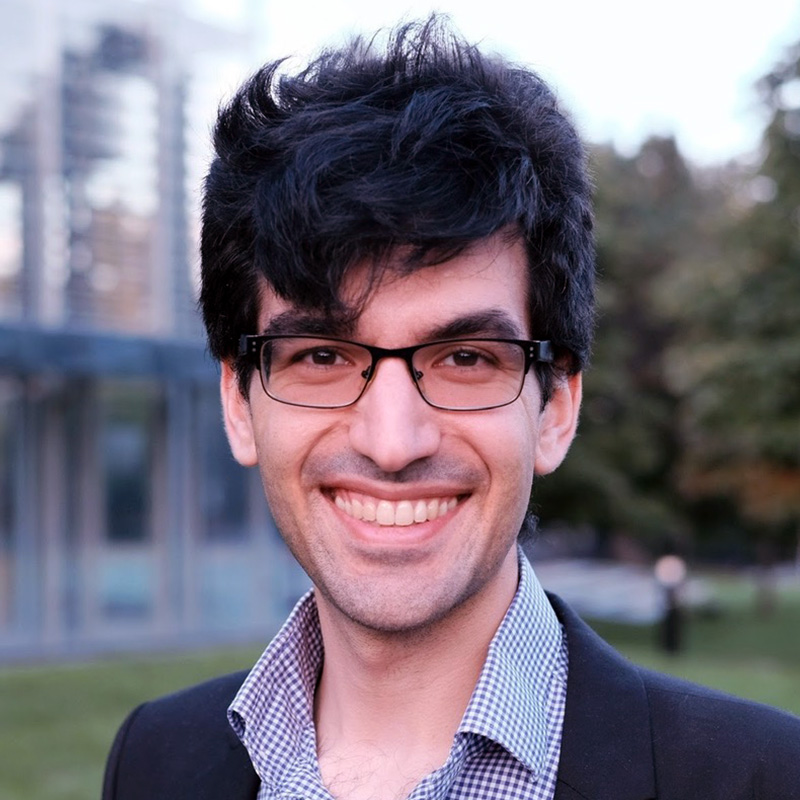
RF: What distinguishes you from the other candidates?
My experience developing both in-class scientific courses and extracurricular activities. I’ve most recently been through the system as a student, and a lot of what did and what did not work is still fresh. One example of something good in my schools back in Tennessee was how easy it was for anyone in the city to start a club. From most everyone I’ve spoken to, getting involved as a mentor here is an opaque and often difficult process. I’ve grown multiple organizations designed for making that process easier, and I know what goes into developing effective school courses (from writing to the sciences).
RF: How could the School Committee be more effective?
The School Committee performs best when it acts as a platform for growth. That means making it easy for everyone in the community to contribute their expertise. One simple way is by adding an open feedback forum online. The second step is to be more proactive in updating the curriculum. For example, computer science requires relatively little background, but we don’t offer a course at the upper schools, even though we have many instructors at our local universities developing effective introductory courses. Emailing them and getting the ball rolling is straightforward.
RF: How do you aim to close the achievement gap?
I see two concrete steps we should take immediately. One is by integrating adaptive learning tools into all of our classes. Everyone gets stuck sometimes (for instance, I was especially bad at learning French grammar), but the difference is that the rich can hire private tutoring at those sticking points. If we integrate AI tools (such as EdApp) into our writing classes, it will help teachers enormously by providing a more personalized education plan.
The second step is making the schools themselves more open. That means extending the school day for K-8 to be more in line with the rest of Boston’s schools, and keeping the school facilities (libraries and computer labs) open later into the evening. The corresponding funding (including pay increases and hiring of additional staff) is well within the means of Cambridge’s $245 million budget.
RF: What do you see as CPSD’s greatest strength/greatest weakness?
CPSD’s greatest strength is how talented people in Cambridge are (not just at Harvard and MIT) and the diversity of their experiences. Its greatest weakness at present is the complacency in updating the curriculum.
RF: Is there anything else you would like to add?
Please get involved! If there’s a group you want to start or a concern you have, everyone on the School Committee has an email address you can send a message to. Don’t be afraid to share your voice!



















